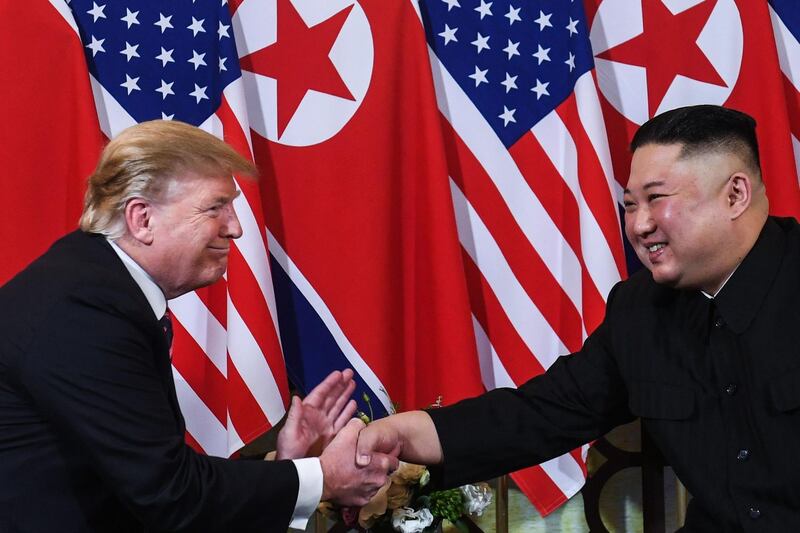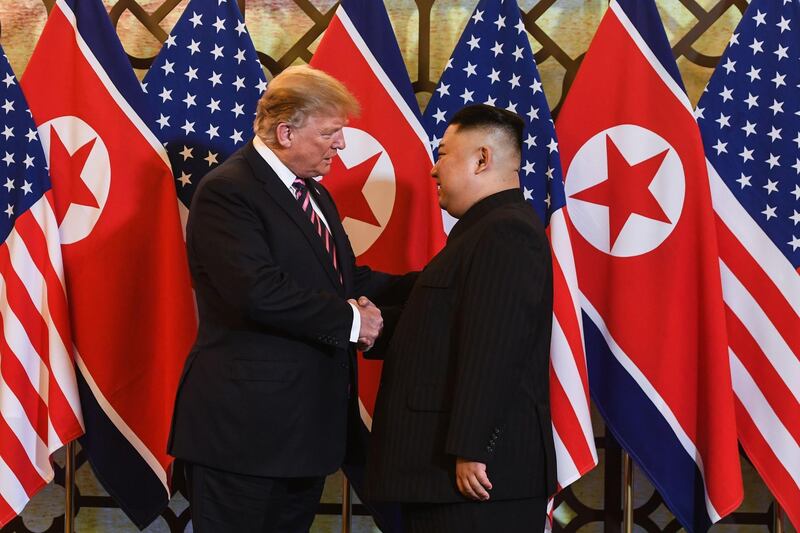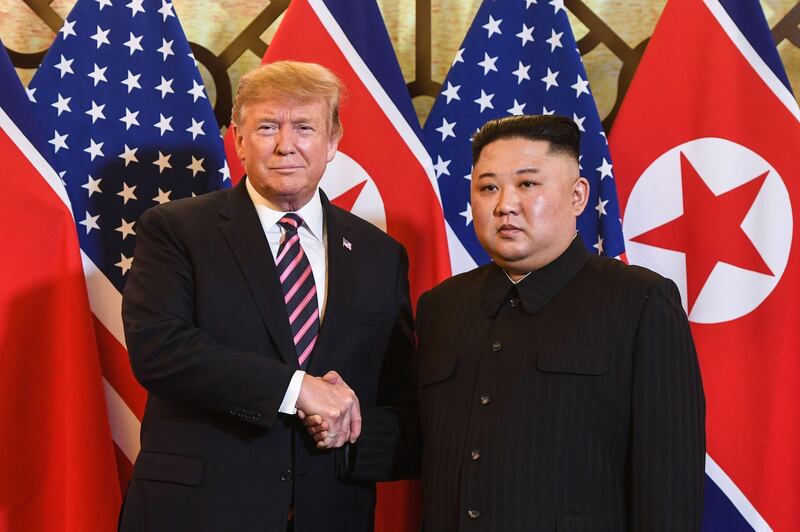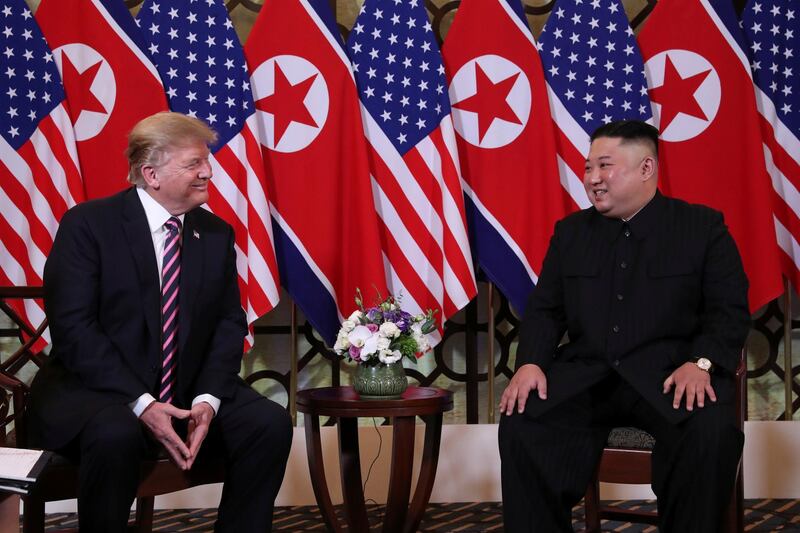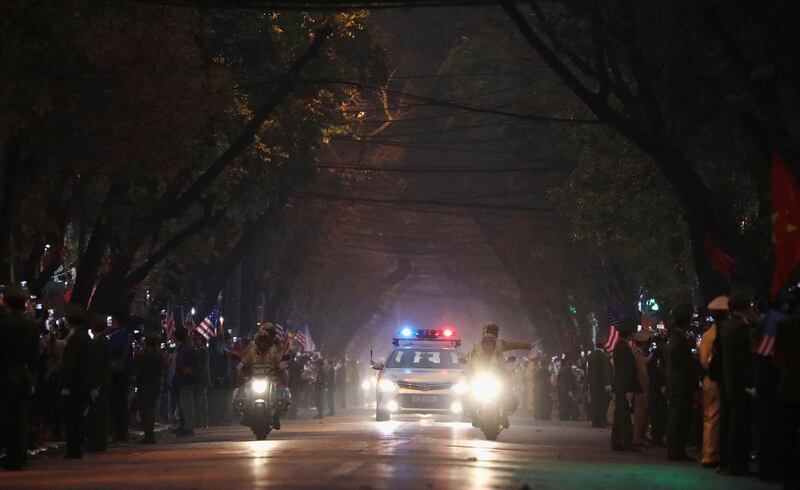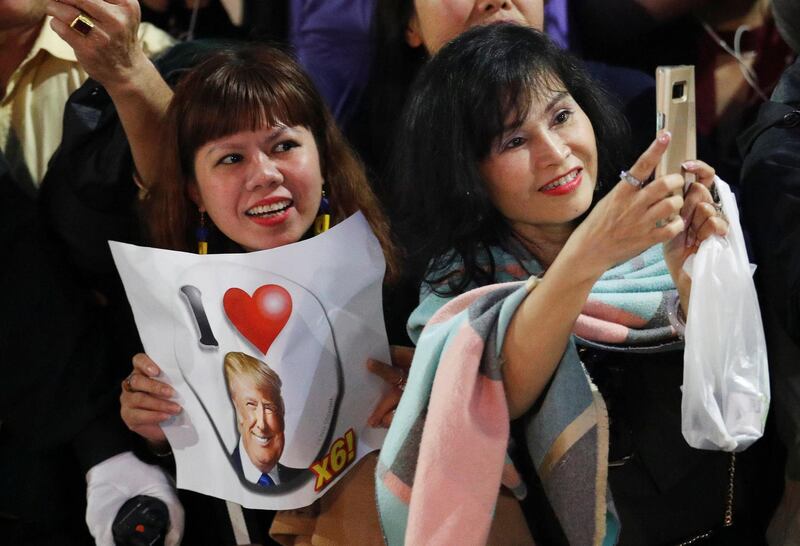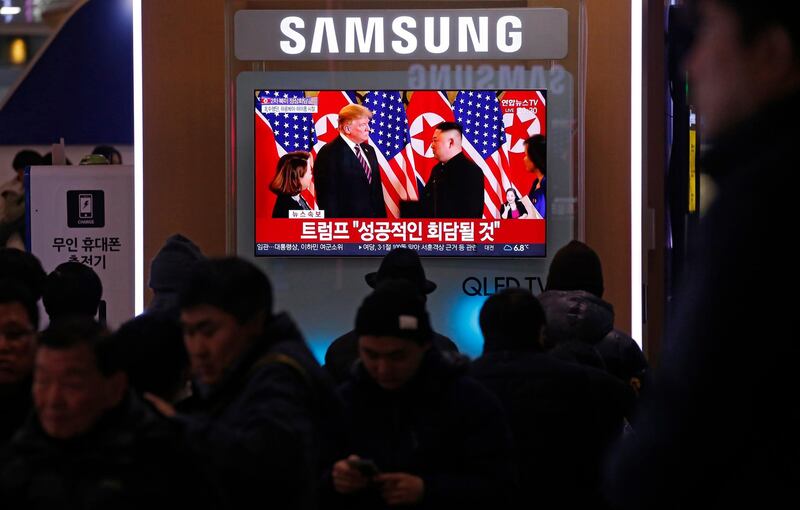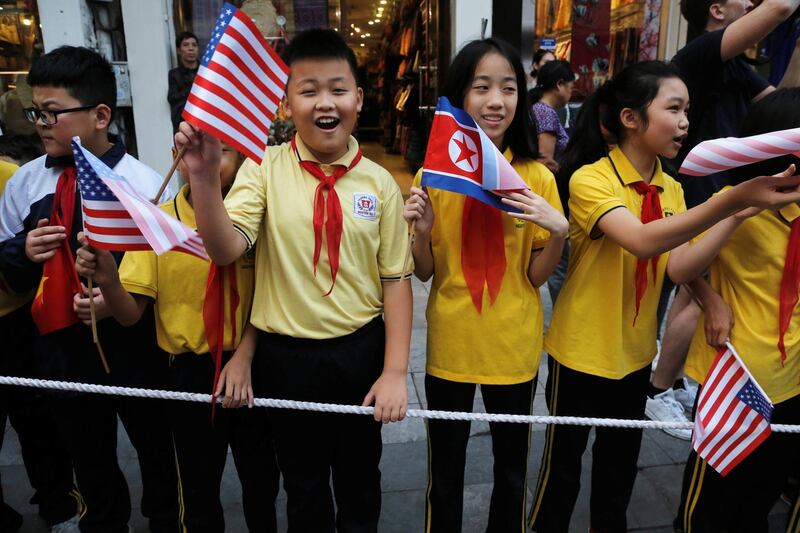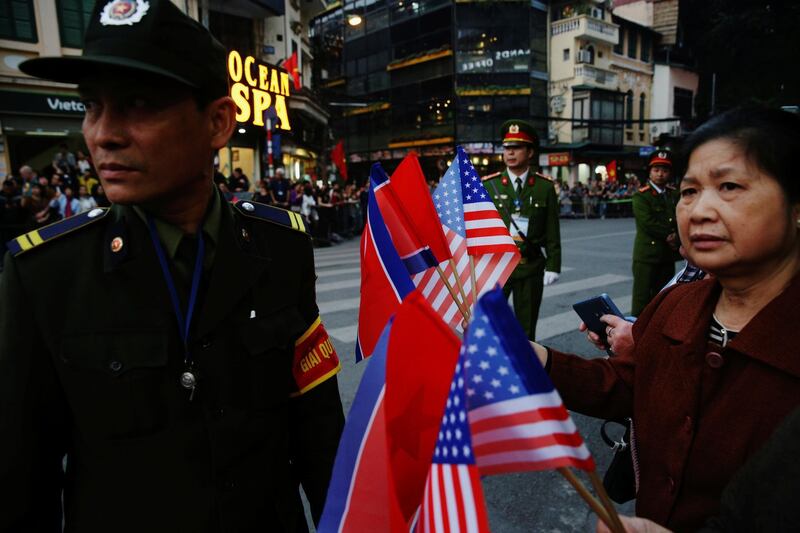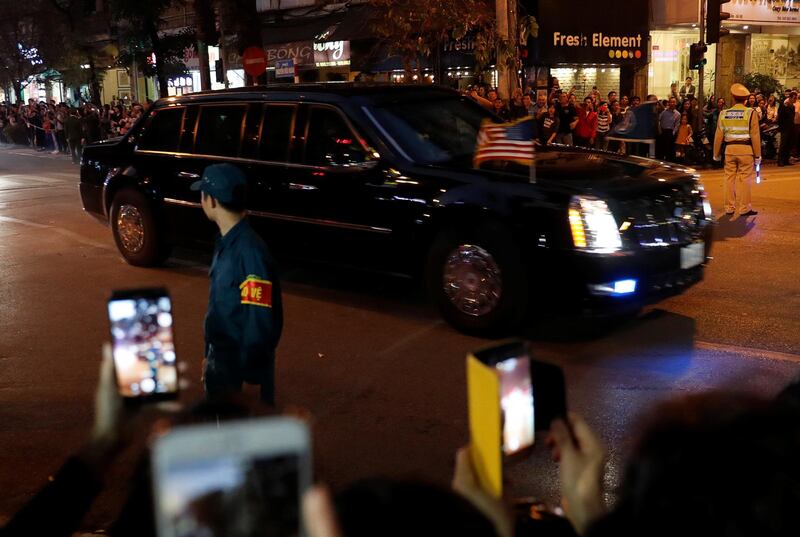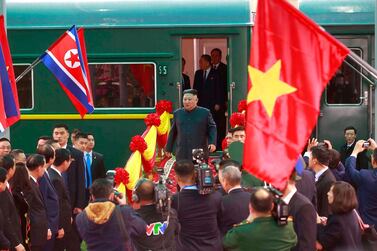US President Donald Trump began his second summit with North Korea's leader Kim Jong-un on Wednesday by playing up the communist state's potential as an economic power – as long as it gives up its nuclear weapons.
In what remains a huge diplomatic gamble by the White House, the meeting of the two leaders in Hanoi will test if long irreconcilable differences can be resolved between America and the world's last Cold War frontier, and if the US can deliver peace on the Korean Peninsula.
The pair shook hands and made brief remarks before an informal dinner, with both sounding optimistic about the outcome of a full day of negotiations on Thursday.
Those talks will be measured by the detail of what either is willing to concede as part of a promised but as yet undefined path to denuclearisation that started with the pair's initial meeting in Singapore last year.
“I thought the first summit was a great success and I think this one, hopefully, will be equal or greater than the first,” Mr Trump said, sitting with Mr Kim in front of a line up of alternating US and North Korean flags.
The US president added: “We made a lot of progress and I think the biggest progress was our relationship is really a good one.”
Mr Kim, speaking in Korean, said: “I'm confident that there will be an excellent outcome that everyone welcomes and I'll do my best to make it happen.”
Before they met at the Sofitel Metropole Hotel in the Vietnamese capital, a highly symbolic city given America's involvement there until 1973 in fighting a war against its communist rulers, Mr Trump tweeted of the potential for North Korea to become an “economic powerhouse”.
The remark reflected how Vietnam boomed after its rapprochement with the US, becoming one of Asia's fastest growing economies while retaining communist rule.
Mr Trump's tweet also disparaged media predictions of what may come out of the Hanoi summit, saying only that he and Mr Kim “will try very hard to work something out on denuclearisation” and adding that he believed “China, Russia, Japan and South Korea will be very helpful”.
The latter remarks underscored the delicate regional balance that could be affected by any agreements between the US and North Korea that follow the Hanoi summit. American troops have been based in South Korea since the armistice that ended hostilities between the neighbours in 1953.
And the threat of nuclear attack – Pyongyang is estimated by Western intelligence agencies to have 30 atomic bombs – hangs over Japan and South Korea, though the latter has restarted diplomatic talks with the North in near tandem with Mr Trump's dialogue with Mr Kim.
Having pledged during the US presidential campaign to solve the problem of North Korea's nuclear arsenal, Mr Trump initially clashed with Mr Kim, derisively calling him “little rocket man”.
But having granted him their historic meeting in Singapore last year they have cultivated a cordial relationship heavy on warm words but absent of any substantive progress on denuclearisation.
It is uncertain if the two leaders will give undertakings that could amount to a breakthrough. Those steps could include a freeze on nuclear production, a declaration of an end to the Korean War, or a road map and timeline for the North giving up its atomic weapons.
The Singapore summit – Mr Kim pointed out in Hanoi that it ended 261 days ago – indicates how long any process of denuclearisation could take. The International Atomic Energy Agency, as well as the CIA, has said that North Korea has not yet taken steps to limit its nuclear capabilities and has more likely advanced them in the past year.
However, Mr Trump's team counter that there has been no nuclear testing by the North in more than 15 months, a significant change from the early days of his presidency when the communist country's scientists made a breakthrough by developing a missile capable of reaching the US.
The US president is accompanied at the summit by Mike Pompeo, his secretary of state and a former director of the CIA, who on Sunday said complete denuclearisation was a condition for North Korea receiving any sanctions relief.
Those remarks will test the limits of what Mr Kim is prepared to do. Following the Singapore summit the effort to get the North to begin dismantling its arsenal stalled because Mr Pompeo insisted that Pyongyang declare how many atomic weapons, missiles and production facilities they had as a start to denuclearisation.
The North – whose main nuclear complex at Yongbyon includes a uranium enrichment facility – refused and a subsequent request from the US secretary of state to meet Mr Kim was denied.
